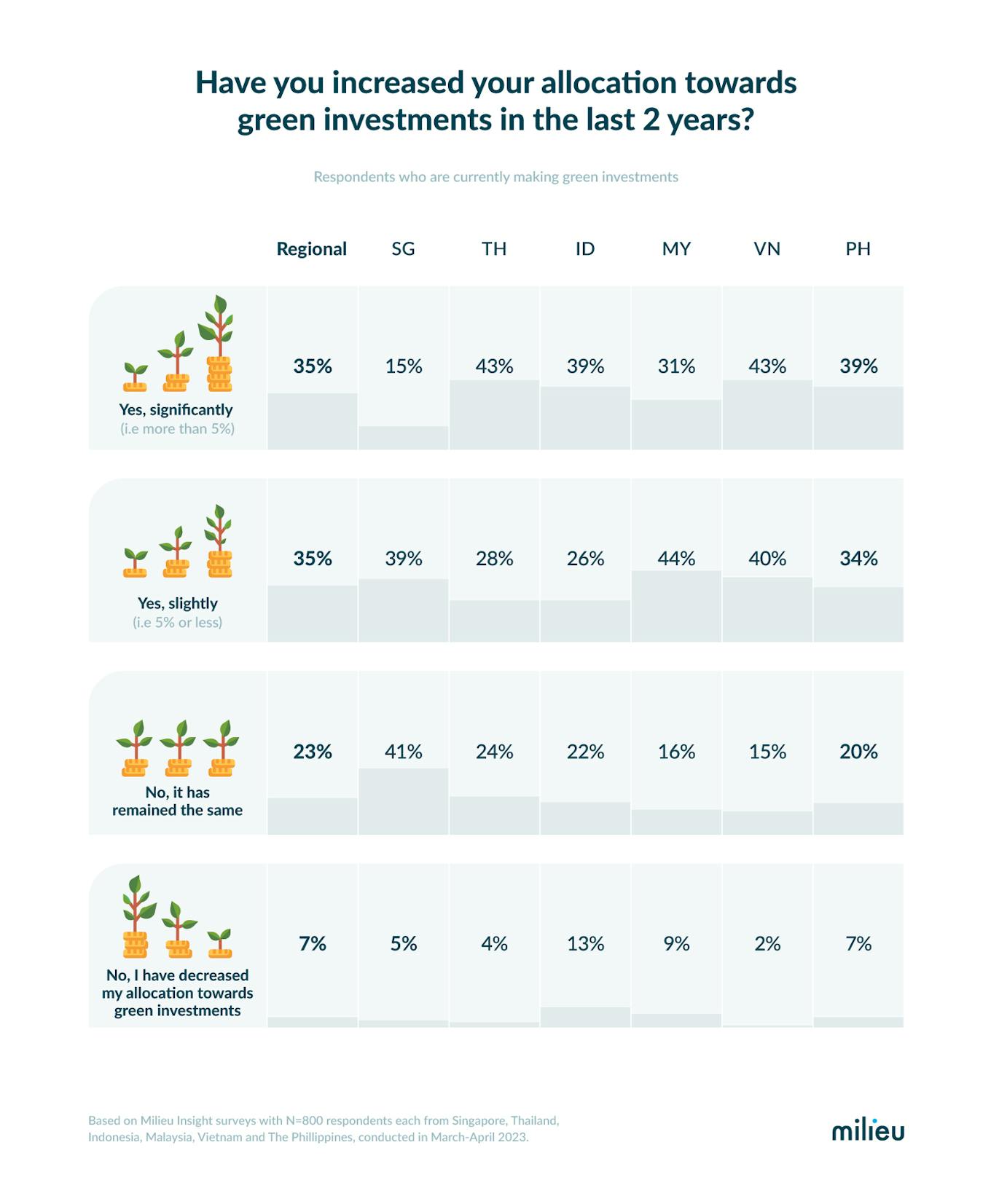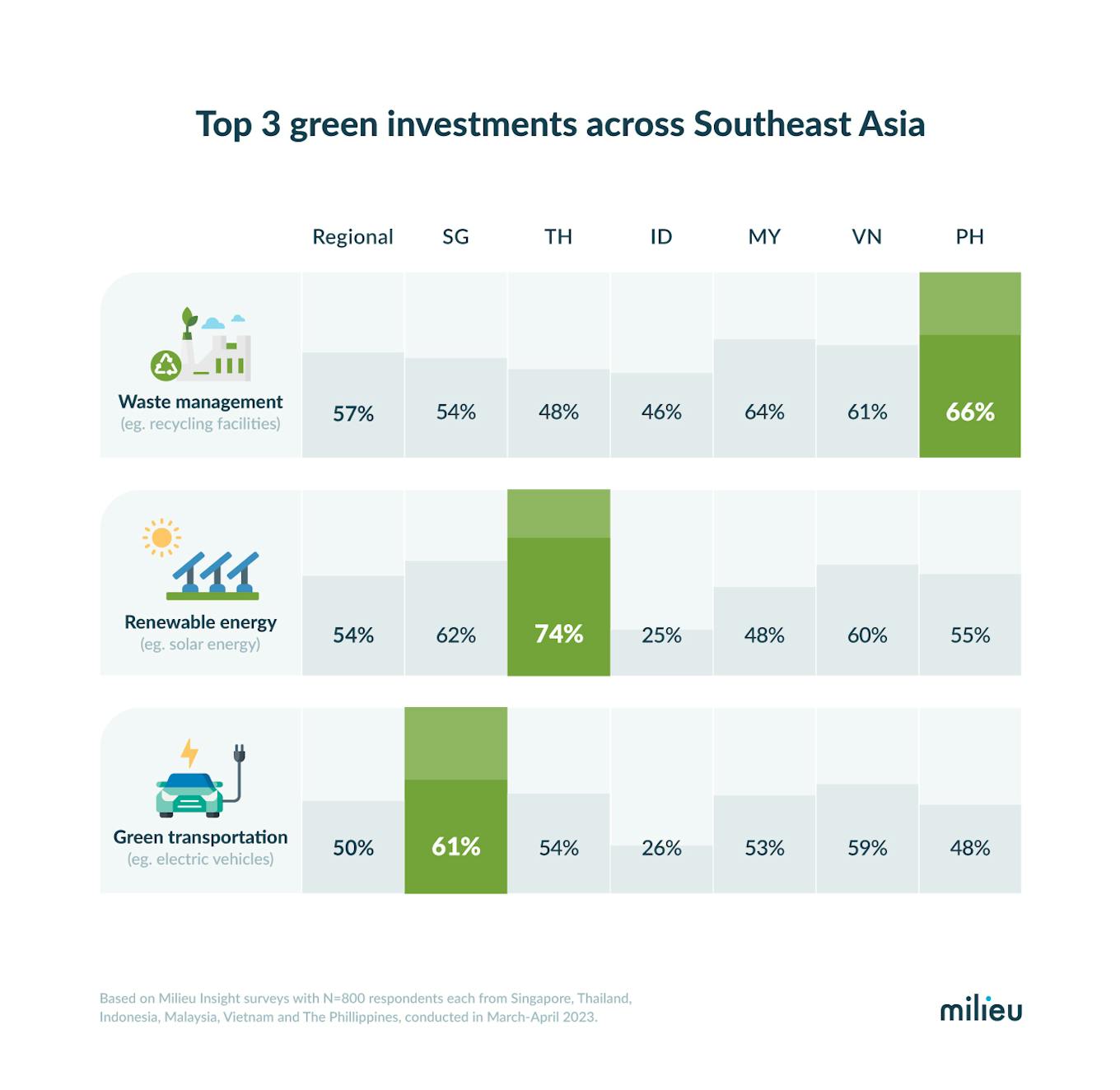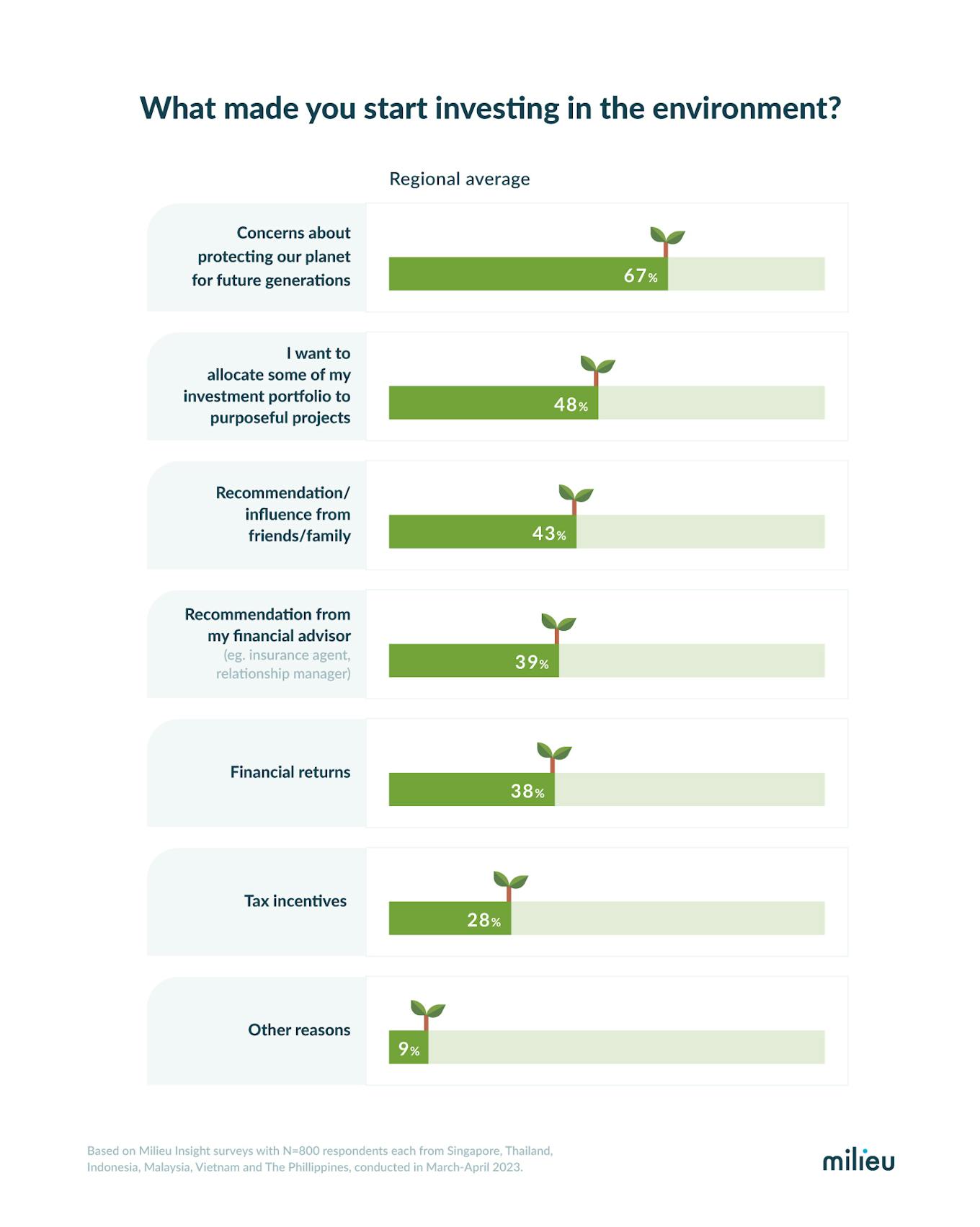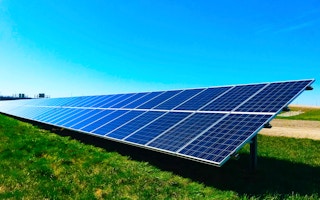Despite increasing awareness of the adverse effects of global warming and the need to fight climate change, only 11 per cent of Southeast Asians are making green investments, according to a consumer study by Milieu Insight, a Singapore-based market research and data analytics company.
To continue reading, subscribe to Eco‑Business.
There's something for everyone. We offer a range of subscription plans.
- Access our stories and receive our Insights Weekly newsletter with the free EB Member plan.
- Unlock unlimited access to our content and archive with EB Circle.
- Publish your content with EB Premium.
Out of the respondents who have yet to invest, more than half (53 per cent) are willing to do so in the future. Forty-one per cent are uncertain about investing in the green sector.
Milieu Insight’s “Invest in our Planet” Earth Day 2023 survey was conducted in March and April 2023 with 4,800 respondents across Singapore, Malaysia, Indonesia, Philippines, Thailand and Vietnam. There was a total of 800 respondents per country. The age range of the respondents was from 16 to 55 years and above and they were grouped according to their monthly household income.
Malaysia is the leading country for interest in green finance, with the highest proportion of green investors at 17 per cent. In second place was the Philippines at 15 per cent, while Thailand had the lowest proportion of green investors at 6 per cent. Sixty-one per cent of green investors in Malaysia came from the highest monthly household income group of RM16,000 (US$3610) and above.
The study suggests that there is positive outlook in Southeast Asia in terms of financing for sustainable development, with 70 per cent of respondents who are currently making green investments citing they have increased their allocation in green investments over the last two years.

Most investors have increased their green investments in the last two years. Image: Milieu Insight
The survey also asked current investors and those not currently investing but willing to do so, what would influence them to make green investments or increase their green investments. Top of the list of motivations was to create a positive environmental impact (76 per cent) followed by improved market stability (48 per cent) and regulations on green reporting, higher financial returns and government incentives (39 per cent each).
Majority of investments in waste management
The top sector for green investments among respondents was in waste management at 57 per cent. This was followed by the renewable energy sector (54 per cent) and green transportation (50 per cent). In the Philippines, most consumers invested in the waste sector (66 per cent), while renewable energy was the highest investment sector for Thailand and Singapore, at 74 per cent and 62 per cent, respectively.

The top three green investments in Southeast Asia are in waste management, renewable energy and green transportation. Image: Milieu Insight
Anxious about the planet
Most Southeast Asian consumers became green investors due to concerns about the environment. When asked what made them start investing in the environment, the majority (67 per cent) of respondents said to protect the planet for future generations. The next largest cause (48 per cent) for environmental investments was to allocate a portion of their investment portfolio towards purposeful projects. 43 per cent said they invested because of being influenced by family or friends.

Concern for the environment is the top reason cited by respondents for starting green investments. Image: Milieu Insight
Meanwhile, 54 per cent of respondents said they have adopted more sustainable lifestyle habits such as recycling and reducing the use of plastics.
Some 85 per cent of Southeast Asian consumers believe that the choices of individual consumers can collectively have a major impact on the environment. Eighty-five per cent of respondents also think their actions matter, even if they can’t observe their impact on the environment in the near future.
Milieu Insight’s study emerges a few years after research from GlobalData found that concern for social and environmental issues such as gender equality and environmental protection varies significantly across Southeast Asia, with Filipinos caring the most about sustainability issues, and Singaporeans the least.










